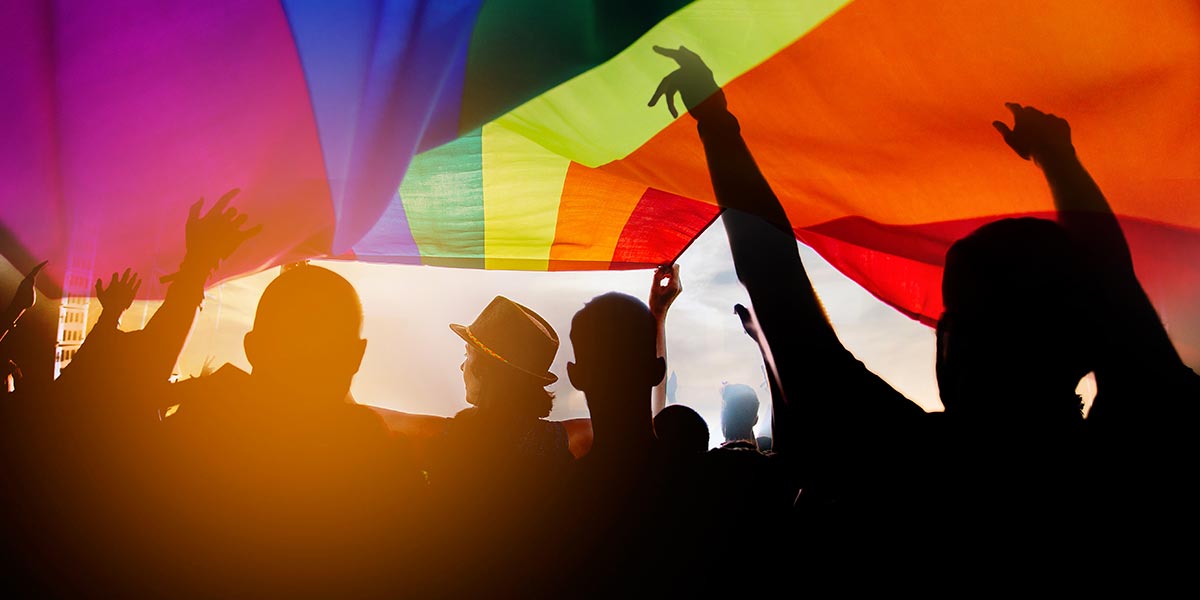LGBTIQ+ rights highlighted on Human Rights Day

The rights of intersex children and practical information for survivors and victims of discrimination were highlighted by LGBTIQ+ groups on Human Rights Day on Sunday.
Marked on 21 March in South Africa, Human Rights Day remembers the slaughter of 69 protesters in Sharpeville by the apartheid police in 1960.
It serves to remind South Africans about the sacrifices that accompanied the struggle for the attainment of democracy and is an opportunity to reflect on progress made in the promotion and protection of human rights.
Gauteng-based OUT LGBT Well-being used the occasion to launch its useful new booklet titled LGBTIQA+ Justice Without a Lawyer.
The pamphlet offers advice on what to do if a person’s rights are violated, including the contact details of various institutions where a victim/survivor can report those violations and get assistance, without the need for a lawyer. The entities listed range from the Equality Courts to the Broadcasting Complaints Commission.
OUT’s Hate Crime Manager, Roché Kester, said the booklet was important because while “South Africa has one of the more progressive constitutions in the world, in practicality these rights don’t always translate and LGBTI individuals still experience extreme violence and violations.”
The LGBTIQA+ Justice Without a Lawyer booklet can be downloaded here.
Intersex children in South Africa are still subjected to intersex genital mutilation
Also on Human Rights Day, Iranti called for the South African government to uphold the Convention on the Rights of the Child by ending intersex genital mutilation.
Intersex is an umbrella term describing persons born with sex characteristics (sexual anatomy, reproductive organs, hormonal structure and/or levels and/or chromosomal patterns) that do not fit the typical definition of male or female. Experts believe that intersex persons constitute between 0.05 to 1.7% of the total population.
Intersex children are still subjected to non-consensual, irreversible, and medically unnecessary procedures known as intersex genital mutilation (IGM), said Iranti. Parents of intersex children often experience social pressure, traumatising experiences in medical settings, lack of support in understanding the medicalised information they get from doctors, and lengthy examinations of their new-born child.
“This can put parents at risk of high levels of stress, including the risk of developing post-traumatic stress symptoms. Therefore, parents clearly need support as well,” commented Iranti Programme Officer Sibusiso Kheswa.
Crystal Hendricks from Intersex South Africa added that intersex persons not only lack access to appropriate and affirming healthcare, but also lack access to justice, education, social and employment services, and opportunities.
Although there are some existing legal frameworks in South Africa that seek to protect and recognise intersex persons, no piece of legislation makes explicit reference to the rights to bodily autonomy and integrity or the right to self-determination for intersex people, nor are there any policies in place to guide medical treatment where necessary.
This has resulted in a lack of action by the government to protect intersex children from IGM, which has continued as an acceptable practice unabated, violating intersex people’s rights and inflicting life-long damage, said Irani. Most disturbing is the proliferation of these practices at university clinics and state hospitals, effectively ensuring state funding for human rights violations.
Because of the prevalence of rights violations of intersex children within our hospitals, Iranti called on the Department of Health to put the following in place to protect these rights:
- to urgently enact a moratorium on Intersex Genital Mutilation (IGM),
- to depathologise intersex variations in medical classifications by specifically removing disorders of sex development (DSD) in the International Classification of Diseases code,
- to ensure access to health based on ethical medical standards and to ensure that intersex persons have full access to their medical history.
This is a theme that needs to be constantly remembered. As much as the acronym of the LGBTQIA+ community has grown, not all letters have been receiving the same attention. Intersexual children are, just like binary children, the future of our society, so they need to be cared for from the beginning and in every sense. I am appalled to learn that the non-consensual mutilation of innocent minors is being taught in practices in university clinics and state hospitals. This highlight was more than important!
Congratulations to those involved!